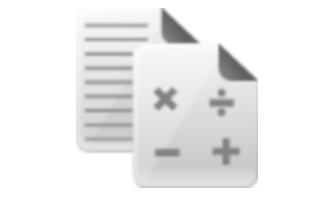Grammar
English Language Arts, Grade 2
Grammar
Study Guide

Grammar
Flash Cards

Grammar
Quiz

Grammar
Worksheets

Grammar
Games

Study Guide Grammar English Language Arts, Grade 2
❮
1
/
3
❯
GRAMMAR What is Grammar? Grammar is the subject which tells how to speak and write correctly. It is a set of rules that define the structure of a language. Here are some grammar rules you should know. Apostrophe ’ An apostrophe is a punctuation mark that looks like a comma floating in the air: It is used to show possession as in Jack’s coat, Mom’s car, girls’ room. It is also used in contractions: can’t, don’t, they’re, he’s An apostrophe is never used to make a plural! Comma , A comma is a punctuation mark. It looks like an apostrophe but it is low on a line of print. A comma is used to separate the day, month, and the year in dates: Thursday, April 8, 2008. A comma is used to separate city and state in an address: Arlington, Virginia A comma is used after the greeting and the closing in a letter: Dear Jenny, Your friend, Commas are used in writing a list. I will buy apples, grapes, bananas, and oranges. Quotation marks “word” Special signals to show you in writing when someone is talking: “Look.” Quotation marks come before and after the actual words of a speaker. Quotation marks are also used to write titles of magazines, games, some stories, songs. My favorite song is “America, the Beautiful.” Nouns, Singular and Plural - Nouns are people, places and things. A singular noun is one person, place or thing: boy, home, toy. A plural noun is more than one: boys, homes, toys. A proper noun is a particular person, place, or thing: Joe, White House, Nintendo. Pronouns - words that take the place of nouns: I, me, you, he, she, they, we, it, them, us, him, her. © Copyright NewPath Learning. All Rights Reserved. Permission is granted for the purchaser to print copies for non-commercial educational purposes only. Visit us at www.NewPathLearning.com.
Subject - The main part of a sentence that tells what the sentence is about. Predicate - the part of the sentence that tells what the subject is, has, or does. Subject and verb agreement - In writing sentences we must be sure that the subject and verb agree. Examples: A monkey eats a banana. Three monkeys eat bananas. A girl is a young woman. Girls are young women. That boy jumps the farthest. Those boys jump almost as far. Use pronouns I and me - The pronoun I can only be used in a subject, never in a predicate. Example: I live in a blue house. Mom and I like to shop. Sarah and I are good friends. In a predicate, use the pronoun me. She likes to play with me. Give it to me. Did you see me? Compound words - two small words are joined together to make a new word. Examples: pancakes, popcorn, cupcake, grapefruit, baseball, rainbow, milkshake Alphabetical order - words can be arranged in order using the alphabet to help you find them quickly in a dictionary, encyclopedia, phone book, or other list. When words begin with the same letter, you look at the next letter for each to see which comes first in alphabetical order. Examples: add, divide, multiply, subtract dare, dine, done, duty Chair, check, chip, chuckle Synonyms - words that mean about the same thing. Example: say - talk, fast - quick, sleep - nap Antonyms - words that mean the opposite: black - white, fast - slow, awake - asleep Adjectives - words that describe nouns. Examples: hot, cold, red, blue, nice, mean, big, little Adverbs - words that describe verbs. Examples: quickly, carefully, here, there, up, down, soon, now © Copyright NewPath Learning. All Rights Reserved. Permission is granted for the purchaser to print copies for non-commercial educational purposes only. Visit us at www.NewPathLearning.com.
Try this! 1. Where is an apostrophe needed? My dads car broke down. 2. Where are commas needed? Tuesday June 5 2008 3. Where are quotation marks needed? The teacher said, Good morning, boys and girls. 4. What is wrong with this sentence? Me and my sister are going to the store. 5. Add a noun to this sentence. Everyday we go to _________ to learn new things. 6. Find the pronouns in this sentence. We like to get presents from you. 7. Put these words in alphabetical order: play, jump, hop, skip © Copyright NewPath Learning. All Rights Reserved. Permission is granted for the purchaser to print copies for non-commercial educational purposes only. Visit us at www.NewPathLearning.com.
